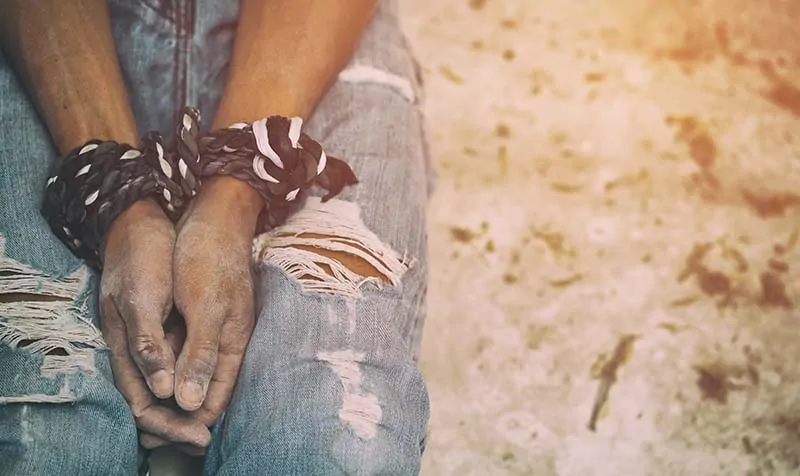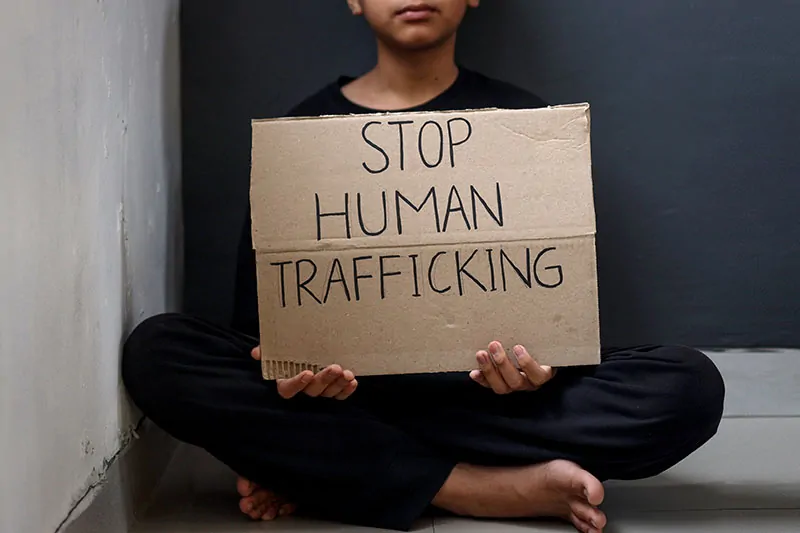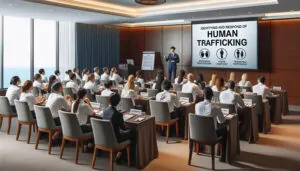
Human Trafficking in Hotels: An In-Depth Analysis and Solutions for 2024
Table of Contents
Toggle
Understanding the Magnitude of Human Trafficking in the Hospitality Sector
Human trafficking, a clandestine yet pervasive issue, has increasingly infiltrated the hospitality industry, particularly in hotels. This multi-billion-dollar criminal enterprise exploits vulnerable individuals for various forms of forced labor and sex trafficking. Hotels, offering anonymity and a transient clientele, have become unwitting facilitators of this global crisis.
The Historical Context of Human Trafficking in Hotels
The exploitation within hotels is not a recent phenomenon. Over the years, traffickers have exploited the hospitality industry’s infrastructure to conduct their illicit activities. This exploitation often goes unnoticed due to the discreet nature of these operations and the lack of awareness and training among hotel staff.
Mechanisms of Trafficking in the Hotel Industry
Traffickers exploit the privacy and anonymity provided by hotels to conduct their operations. The use of hotel rooms for trafficking purposes is often facilitated by online booking systems, which allow traffickers to maintain a low profile. The victims, often isolated and controlled, are hidden in plain sight among regular hotel guests.
Recent Legal Developments and Their Impact
Recent years have seen a surge in legal actions against hotels for their alleged complicity in human trafficking. High-profile lawsuits have been filed against major hotel chains, accusing them of negligence in preventing trafficking activities on their premises. These legal developments have prompted the industry to reevaluate its role and responsibilities in combating trafficking.
Recent Legal Cases Against Hotels
- Marriott Lawsuits: Marriott, a leading hotel company, has faced several lawsuits related to human trafficking. The company has been accused of failing to prevent trafficking activities on its premises.
- Rising Tide of Lawsuits in 2023: The number of lawsuits against hotels for alleged involvement in human trafficking has seen a significant increase in 2023. This surge reflects a deeper, systemic issue within the hospitality industry.
- Sex-Trafficking Lawsuits: Over 110 sex-trafficking lawsuits have been filed against hotel franchisers. These cases often involve survivors seeking to hold hotel corporations legally accountable for abuse that occurred on their properties.
High-Profile Cases: More than 40 human trafficking lawsuits have been filed against major hotel companies, including Wyndham Hotels and Resorts, Red Roof Inns, and Choice Hotels
 Proactive Measures for Hotels to Combat Trafficking
Proactive Measures for Hotels to Combat Trafficking
Hotels are increasingly recognizing the importance of proactive measures to combat human trafficking. This includes:
- Staff Training: Educating hotel staff on recognizing and responding to signs of trafficking.
- Policy Implementation: Developing and enforcing policies that deter trafficking activities.
- Collaboration with Law Enforcement: Working closely with law enforcement agencies to report and address suspected trafficking cases.
The Role of Guests
- Awareness: Guests should be aware of the signs of human trafficking and report any suspicious activities to hotel management or law enforcement.
- Support Ethical Practices: Choosing to stay at hotels that have a clear stance against human trafficking and support ethical practices.
Technological Innovations in Fighting Human Trafficking
Technology plays a crucial role in combating human trafficking in hotels. Innovations such as AI-driven surveillance systems and advanced guest screening tools are being employed to identify and prevent trafficking activities. These technologies enable hotels to monitor suspicious activities and maintain comprehensive records for law enforcement use.
Utilizing ID Scanning Technology
- Record Keeping: ID scanning technology can help hotels keep accurate records of guests, providing crucial information in the event of an investigation.
- Enhanced Security: This technology adds an extra layer of security, ensuring that all guests are properly identified.
- Peace of Mind: For both hotel management and guests, knowing that proper identification measures are in place can provide peace of mind.
The Crucial Role of Guests in Identifying and Reporting Trafficking
Guests can play a pivotal role in identifying and reporting signs of human trafficking. Awareness of the indicators of trafficking, such as signs of physical abuse or control over movement, can lead to timely intervention and rescue of victims.
The Road Ahead: Strengthening Efforts Against Human Trafficking in 2024
As we move into 2024, the fight against human trafficking in hotels requires a multifaceted approach. This includes:
- Enhanced Legal Frameworks: Strengthening laws and regulations to hold hotels accountable for preventing trafficking on their premises.
- Community Engagement: Raising public awareness and fostering community involvement in anti-trafficking efforts.
- Global Collaboration: Encouraging international cooperation to address this transnational crime.
Conclusion
The issue of human trafficking in hotels is a complex and multifaceted challenge that requires concerted efforts from all stakeholders. As we advance into 2024, it is imperative that the hospitality industry, law enforcement, technology innovators, and the public collaborate to eradicate this heinous crime. Through awareness, education, technological advancements, and robust legal frameworks, we can make significant strides in combating human trafficking in hotels.
Resource Links

 Proactive Measures for Hotels to Combat Trafficking
Proactive Measures for Hotels to Combat Trafficking